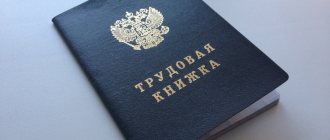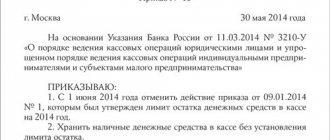BUSINESSUPPORT.RU › Individual entrepreneur › General questions › Entrepreneur status
Restrictions on obtaining status
There are a number of restrictions that prohibit citizens from working as an individual entrepreneur and, therefore, from having the appropriate status. This applies to certain individuals:
- citizens working in government and law enforcement agencies;
- persons who, within the framework of a court decision, cannot carry out commercial activities for a certain period (after its expiration, the ban is lifted);
- entrepreneurs who already have this legal status;
- citizens whose case was forcibly closed (at the same time, 12 months have not passed since the entry into force of the court decision);
- persons who have a criminal record (if there are restrictions on conducting business activities);
- foreigners who are in the country illegally or do not have the appropriate permits.
Specific features
The legal status of an individual entrepreneur, from a legal point of view, is determined by the characteristics of origin. An individual entrepreneur is recognized as a participant in business processes, since he carries out activities of an entrepreneurial nature. The formation of a business entity as such is not carried out.
This duality determines the rights that accompany obtaining the status of an individual entrepreneur, especially the right to receive commercial benefits.
Individual entrepreneurs can only engage in a limited list of activities. It was determined by the relevant government authorities and excludes, for example, the possibility of selling alcoholic beverages or selling services related to security activities.
Therefore, each business entity must, before registering an individual entrepreneur, carefully read the list of prohibited types of manipulations that imply the need to open a limited liability company. There are restrictions related to the tax policy pursued by the state government, so a thorough check of the actual activities of the subject is carried out.
Obtaining the status of an individual entrepreneur does not mean that the property belonging to the subject will be divided into categories (those participating in the business and those not). In this situation, both pros and cons can be identified. For example, it is possible to use a previously acquired item of property to make a profit as part of a commercial activity.
However, the negative side is that all property may be subject to seizure if the individual entrepreneur has unfulfilled obligations to creditors.
In this case, the property of the individual entrepreneur will be transferred as payment of debt, while no records are kept of the property that was or was not involved in the process of activity.
Among the obligations of individual entrepreneurs, there is the need to make timely payment of tax payments, the amount of which is calculated according to the form. It should be taken into account that mandatory payments include amounts sent to the Pension Fund. In many regions of Russia, individual entrepreneurs have a special position, which is supported by the support of representatives of local governments. This manifests itself in the form of benefits provided for by law. Such activities are carried out by the state for the development of small businesses.
From when does the status apply?
The legal status of an individual entrepreneur arises from the moment of registration with the appropriate authority. This can be done by any citizen of the Russian Federation, as well as persons residing temporarily on the territory of Russia, with or without foreign citizenship.
Seal of your own company
Registration begins with the submission of the necessary documents to the relevant authority.
The following documents must be provided:
- Application for individual entrepreneur status. It must be drawn up in a uniform form.
- A document confirming payment of the state fee.
- In the event that a minor is registered, the written consent of the child’s representatives, certified by a notary, or a certificate of emancipation is added to the above list.
Important! Nothing other than these documents is required when registering an individual entrepreneur.
Personal presence when submitting documentation is not required. This can also happen by mail. In this case, within a day after receipt, a notification about this must be sent in the opposite direction.
The registration process takes up to five days. During this time, a decision is made whether to assign individual entrepreneur status or not. If the answer is affirmative, the information about the entrepreneur is entered into a special all-Russian register.
It is after making an entry in the register that the individual entrepreneur status begins to apply. In confirmation, the owner is issued a certificate. It loses its force only upon bankruptcy of the individual entrepreneur (confirmed by a court order) or upon voluntary cancellation with a corresponding application from the owner.
Certificate of entry into the register
Advantages and disadvantages
Advantages:
- An individual entrepreneur has more rights than ordinary citizens.
- The right to conduct commercial activities.
- Individual entrepreneurs may not pay taxes on personal income.
- A small number of required documents, minimal cost of registering individual entrepreneur status.
- Individual entrepreneurs pay minimal fines, unlike legal entities.
- A personal seal and bank account are optional.
- An individual entrepreneur decides for himself how to use the income the business brings in; there is no need to wait for the distribution of profits.
- An entrepreneur and his relatives have the right to use all property without dividing it into private and commercial.
- Entrepreneurial activity is easily compatible with any other profit-generating activity.
Flaws:
- The work of an individual entrepreneur is very risky; if entrepreneurial activity is not successful, the businessman risks saying goodbye to all his property.
- It is necessary to pay taxes on time.
- If the entrepreneur has employees under his command, he assumes the responsibilities of their insurance agent.
- An individual entrepreneur undertakes to pay a fiscal contribution to the Pension Fund of the Russian Federation even if he did not engage in actual activity during the period specified in the report.
- For individual entrepreneurs there are restrictions on the implementation of certain types of activities.
- Business partners prefer cooperation with legal entities rather than with individual entrepreneurs.
- In the case of divorce proceedings, all property of the individual entrepreneur is divided in half between the husband and wife. The exception is cases when the division of property is carried out according to the terms of the marriage contract.
What will not be taken away when collecting debt
An individual, as an individual entrepreneur, carrying out any activity, is liable with his property for existing obligations. But at the same time, there is property that is not subject to seizure in the event of debt collection:
- Shoes, clothing, as well as personal and household items. Jewelry and other items that qualify as luxury items do not fall into this category.
- Residential premises, shares and land plots where this real estate is located.
- Property that is necessary on the basis of assignment to an entrepreneur of a disabled group. This can be transport and any necessary items.
- Fuel. It is not removed when used for cooking or heating a living space.
- Memorable and honorary signs, prizes and state awards received personally by the individual entrepreneur.
- Seeds needed for future sowing.
- Property without which business activities will become impossible.
- Food and cash, provided that their total amount does not exceed the subsistence level of the individual entrepreneur and his dependents.
- Breeding animals, as well as the food necessary for their maintenance. This rule applies regardless of whether they are used in business activities or not.
Thus, if a businessman is listed in the state register of individual entrepreneurs, he has the right to keep the property mentioned above in the event of debt collection.
Next we will talk about the pros and cons of the status in question.
Disadvantages of individual entrepreneur status
It was noted above that individual entrepreneurs have the right to act as employees without closing the individual entrepreneur.
However, this right does not apply to all positions. A businessman does not have the right to simultaneously be registered as an individual entrepreneur and hold any public position. This is prohibited by law. Many companies and individuals often give preference to legal entities rather than individual entrepreneurs when collaborating. What is this connected with? For many citizens, the status of an LLC or JSC (in any form) inspires more confidence than an individual entrepreneur. There is no convincing logical justification for such behavior. It is only generally accepted that LLCs and JSCs are more reliable than individual entrepreneurs and cooperation with them is more promising, although this is not at all the case.
You need to judge not by OPF, but by the results of the development of a company or individual. Unexpectedly, both LLCs and individual entrepreneurs can equally cease their activities.
Disadvantages include the fact that individual entrepreneurs are liable for obligations with all personal property, including that belonging to the family. In this case, the legal entity has a more advantageous position.
Family relationships also influence IP. For example, in the event of a divorce (unless the terms of the marriage are agreed upon in advance), profits from a business activity are divided equally between the spouses. It does not matter when one of the spouses registered an individual entrepreneur: before marriage or after - everything is considered jointly acquired property.
To avoid such a situation, an individual entrepreneur can draw up a marriage contract, which will clearly define all the conditions for the division of property in the event of a divorce.
Responsibility for illegal activities of individual entrepreneurs
An entrepreneur carrying out economic activities to generate income who has not been registered does not have all the capabilities of his status. Moreover, he falls under appropriate responsibility, which results in various penalties:
- administrative. Imposition of a fine. Implies a complete cessation of the operation of an unregistered enterprise;
- tax. Fine under a certain article;
- criminal. In case of proof of the fact of causing major damage to individuals, legal entities and the state (with income of more than 250,000 rubles).
Official registration and receipt of individual entrepreneur status protects against possible restrictions and allows you to freely carry out commercial activities. At the same time, the entrepreneur is not relieved of the obligation to pay taxes and related contributions to funds.
Advantages of individual entrepreneur status
The individual entrepreneur form has advantages and disadvantages over:
- ordinary citizens;
- other OPF.
Compared to ordinary citizens, individual entrepreneurs have one significant advantage, from which all others come - individual entrepreneurs can legally engage in commercial activities, but ordinary citizens cannot. If civilians engage in business without establishing an individual entrepreneur or legal entity, then by law they will be held accountable (administrative or even criminal).
In terms of taxation, entrepreneurs also stand out from ordinary citizens. Individual entrepreneurs do not pay income tax of 13%. But they must regularly pay contributions to state funds.
In financial terms, the activities of individual entrepreneurs are more profitable than the activities of legal entities. It all starts with registration.
It is much easier and cheaper to obtain such status than to establish an LLC or JSC:
We recommend you study! Follow the link:
How to terminate the activities of an individual entrepreneur?
- It is not necessary for an individual entrepreneur to acquire a seal and a bank account (although most often entrepreneurs formalize these attributes).
- LLCs and JSCs initially invest money in registration in the form of authorized capital; individuals are not required to do this.
Entrepreneurs have a wider choice of taxation systems compared to legal entities.
In case of failure to comply with any legal requirements, individual entrepreneurs are subject to sanctions that are not as significant as those for legal entities (smaller fines, for example).
Individual entrepreneurs can dispose of income at their own discretion: withdraw it from the business, invest it back into the company without reporting. Legal entities cannot do this. The founders of LLCs and JSCs can withdraw money in the form of dividends, for example. At the same time, they are required to pay the established tax on them.
The situation is similar with the property of an individual entrepreneur. Moreover, his family members have the right to dispose of this property at their own discretion.
A businessman with individual entrepreneur status can not only be self-employed, but also combine entrepreneurial activity and cooperation with an employer under an employment contract.










